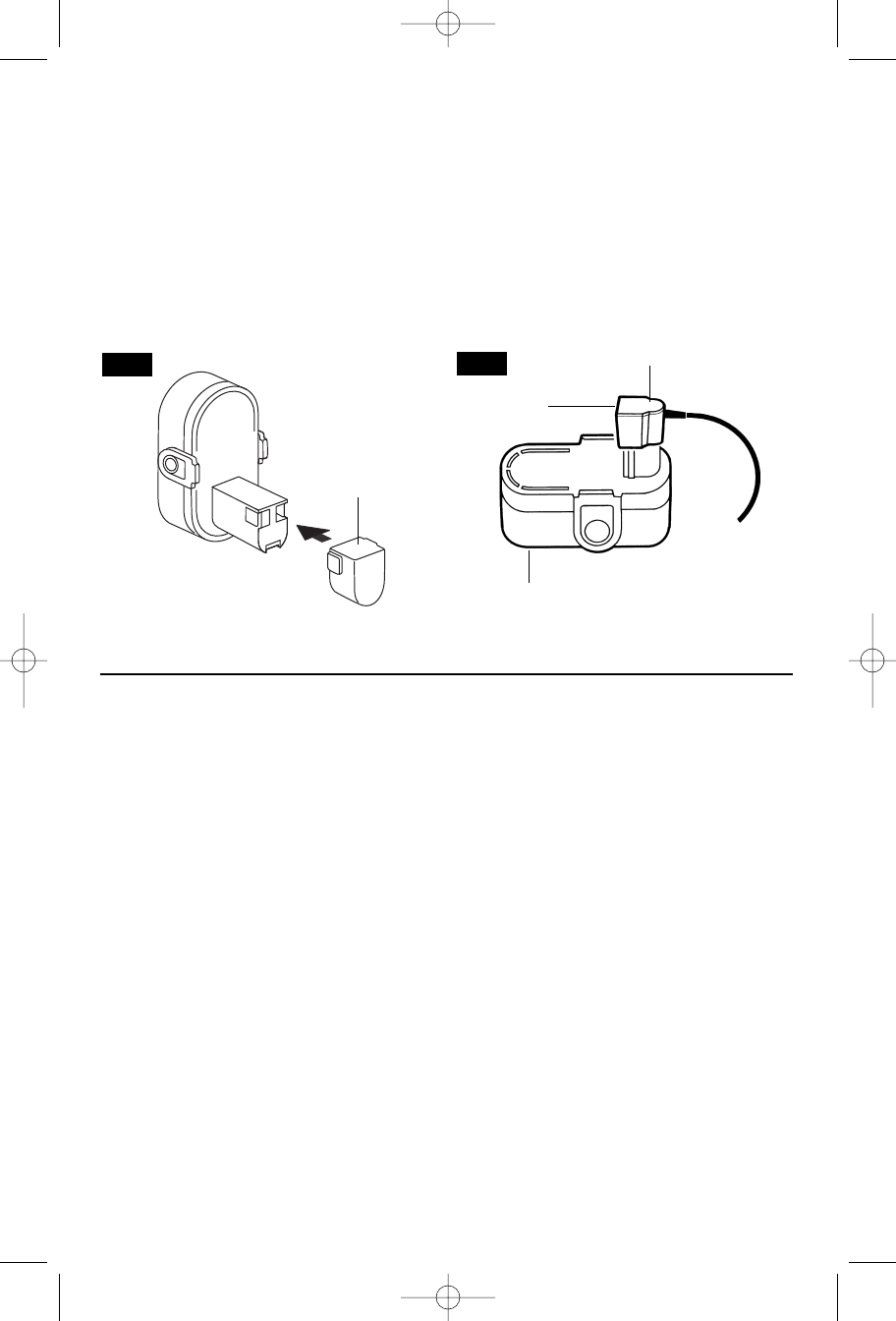
1. The battery pack accepts only about 80%
of its maximum capacity with its first few
charge cycles. However, after the first few
charge cycles, the battery will charge to full
capacity.
2. The charger was designed to fast charge
the battery only when the battery temperature
is between 40˚F (4˚C) and 105˚F (41˚C).
3. A substantial drop in operating time per
charge may mean that the battery pack is
nearing the end of its life and should be
replaced.
4. If you anticipate long periods (i.e. a month
or more) of non-use of your tool, it is best to
run your tool down until it is fully discharged
before storing your battery pack. After a long
period of storage, the capacity at first recharge
will be lower. Normal capacity will be restored
in two or three charge/discharge cycles.
Remember to unplug charger during storage
period.
5. If battery does not charge properly:
a. Check for voltage at outlet by plugging
in some other electrical device.
b. Check to see if outlet is connected to a
light switch which turns power “off” when lights
are turned off.
c. Check battery pack terminals for dirt.
Clean with cotton swab and alcohol if
necessary.
d.
If you still do not get proper charging,
take or send tool, battery pack and charger to
your local Skil Service Center. See “Tools,
Electric” in the Yellow Pages for names and
addresses.
Note: Use of charger’s or battery packs not
sold by Skil will void the warranty.
IMPORTANT CHARGING NOTES
-10-
Plug charger cord into your standard power
outlet. Before inserting battery pack, remove
protective cap, then insert battery pack into
charger (Fig. 6).
The charger’s green light (Fig. 7), will turn
“ON”. The green light remains ‘‘ON’’ as long
as charger is plugged in, and does not shut off.
After normal usage, the battery pack requires
approximately 3 hours or less charging time to
become fully charged. If the battery pack is
run-down completely, it may require up to 5
hours charging time to become fully charged.
When the battery pack is fully charged, unplug
the charger (unless you're charging another
battery pack) and slip the battery pack back
into the tool handle.
To prevent fire or injury when batteries are not
in tool or charger, always place protective cap
onto end of battery pack.
INDICATOR
LIGHT
BATTERY PACK
CHARGER
CHARGING BATTERY PACK (3 HOUR CHARGER)
PROTECTIVE
CAP
FIG. 6
FIG. 7
BM 1619X01517 03-06 3/30/06 3:20 PM Page 10
